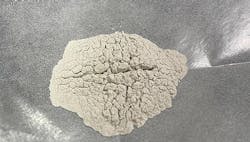Arenes Synthesis Occurs At Milder Conditions
A new catalyst that works at 150°C and ambient pressure achieves the selective hydrogenolysis of a broad range of phenols to industrially important arenes (aromatic hydrocarbons) needed both in the manufacture of fine chemicals and in biorefinery applications, report researchers at the University of Tokyo. The catalyst, composed of aluminum tri-phosphite (Al(PO3)3)-supported platinum (Pt) nanoparticles, also can handle sterically highly demanding phenols and difficult lignin compounds, they add.
The researchers, led by assistant professor Xiongjie Jin and professor Kyoko Nozaki of the Department of Chemistry and Biotechnology, believe their catalyst could hugely reduce the energy cost of production compared with conventional hydrogenolysis reactions that typically need temperatures exceeding 200°C and pressures above two atmospheres.
“Our ‘Pt catalyst’ makes use of platinum nanoparticles and an aluminum metaphosphate substrate, which is rarely ever used in catalysts,” says Jin. “But the most exciting part for us is not just that the catalyst improves reaction efficiency but that it opens up new options for the kinds of source materials that can now be used in these processes,” he stresses.
The researchers already are studying ethers as a potential new starting material. “The hydrogenolysis of ethers is also important in the conversion of biomass like lignin or cellulose to valuable chemical compounds or bio-fuels,” Jin notes.
Another investigation is looking for ways to extend the activity and lifetime of the Pt catalyst — which already can be recycled and reused several times — and at other potential catalysts capable of carrying out the same reactions. “One possible direction is using 3d transition metals [titanium, chromium and manganese] as the catalysts instead of the precious metal Pt,” he explains. As it stands, improvements in both the activity and lifetime of the Pt catalyst are needed before considering any move to pilot scale.
Jin emphasizes that the Pt catalyst developed by the group currently only is applicable to phenols derived from lignin depolymerization, not lignin itself. So, pre-processing of lignin is necessary before use of the catalyst system. “Actually, there are reported catalysts directly applicable to lignin, but energy-consuming harsh conditions are still required. Therefore, if a catalyst could directly be applicable to lignin under mild conditions, it would be very nice.”
While the work has yet to attract any industrial investment, Jin and his co-workers believe their new catalyst system has so many benefits that it could lead to a vastly more sustainable way to produce aromatic hydrocarbons on an industrial scale.
